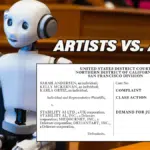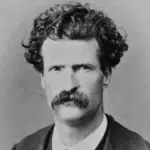Does any one electronics retailer have a monopoly on incompetent employees wearing blue shirts? That’s just one of the questions raised by a cease and desist letter sent by retail giant Best Buy to internet merchant Newegg.com, which Newegg posted on its Facebook page last week.
In its letter, Best Buy takes Newegg to task for, among other things, a TV commercial in which (in Best Buy’s words) a “fake Best Buy employee is depicted as being slovenly and uninformed about computer products, in contrast to [Newegg’s] employees who are portrayed as ‘experts.’” The letter goes on to state that Newegg’s “misuse of valuable trademarks and . . . negative portrayal of our employees violates our trademark rights and misleads consumers about our services in violation of federal and state law.”
Check out the commercial in question.
The first thought that came to mind when I saw this commercial is that if Best Buy thinks that a polo shirt tucked into khakis is “slovenly,” it would really be appalled at the look of my office on casual Friday. My second thought was that I don’t feel qualified to judge the competency of Best Buy’s finest, because most of the time I can’t get anyone to help me in the first place. Maybe I should try tucking in my shirt.
Both Newegg’s commercial and Best Buy’s legal response have resulted in a groundswell of support from Newegg’s customers, most of whom are tech-savvy and bargain-conscious. This is not surprising, as Newegg’s supporters are the likely the same types of customers that Best Buy labeled as undesireable “devils” in an infamous marketing strategy disclosed several years ago.
The wisdom of Best Buy’s letter aside, does it have a legal claim? I think its fair to say that most of the people who view Newegg’s commercial will certainly believe the actor is depicting a Best Buy employee (put aside whether this is because he’s wearing a blue shirt or because he’s clueless about the products he’s selling).
But simply establishing that Newegg’s commercial is targeting Best Buy is not enough to give rise to a trademark infringement claim. Comparative advertising isn’t unlawful, as long as it isn’t false. And opinions of the type expressed through humorous hyperbole usually aren’t capable of being proven false.
There have been plenty of commercials over the years in which companies have not only alluded to their competitors, but have mentioned them by name or even by depicting their logos. As explained in a previous post, the nominative fair use doctrine allows an advertiser to reference another’s mark without running afoul of trademark law. This is why BMW can say (so long as it’s truthful) that its 5 Series can go from 0-60 faster than the Audi A6. Even assuming that Best Buy has acquired trademark or “trade dress” rights in the blue polo shirt/khaki combination (a contention with which Wal-Mart might take issue), this alone is not enough to prevent Newegg from drawing a comparison in its ads.
In addition, the Newegg ad won’t give rise to liability merely because it pokes fun at Best Buy. Indeed, the very fact that Newegg’s commercial has not asserted any facts capable of being proven true or false (e.g., “73.4% of Best Buy employees don’t bathe regularly”), means that any false advertisement claim would likely fail. And it goes without saying that no reasonable consumer will look at the commercial and be confused into thinking that it was endorsed by Best Buy. No company smart enough to get people to pay $79.99 for an HDMI cable would be dopey enough to sponsor its own attack ad.
As is typical in the age of social networking, Best Buy’s cease and desist campaign has drawn more attention to the Newegg commercial than had Best Buy simply ignored it (or responded in kind with its own humorous ad directed at Newegg). Newegg’s Facebook page is rife with comments excoriating Best Buy, and “boycott Best Buy” web pages have seen a spike in traffic, all creating yet another example of the Streisand Effect.
All of which serves as a reminder that it’s no longer enough for companies and their lawyers to understand the law; it’s just as important for them to understand the public relations consequences of proposed legal action, especially on-line. It’s not always easy to know when to fight and when to stand down, but after all, that’s why you have a Geek Squad.






